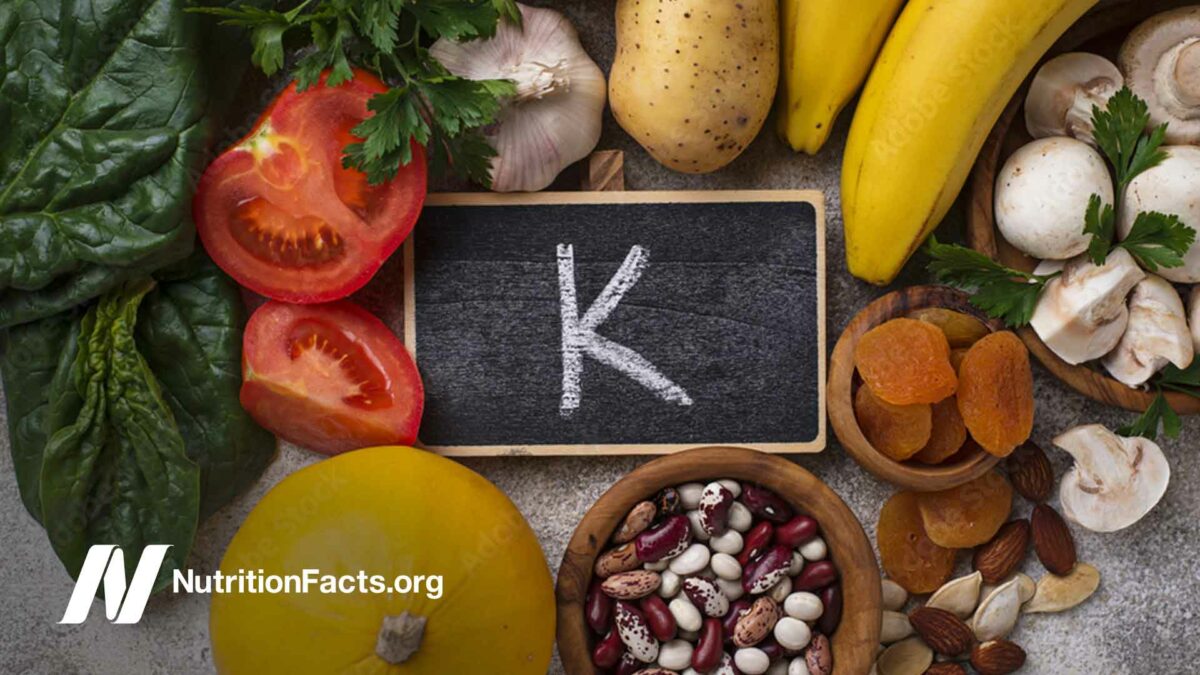
Salt
Salt is a compound made up of about 40 percent sodium and 60 percent chloride. Sodium is an essential nutrient, but vegetables and other natural foods provide the small amounts of sodium you need in your diet. If you consume too much, it can cause water retention, and your body may respond by raising your blood pressure to push the excess fluid and salt out of your system.
For the first 90 percent of human evolution, we likely ate diets containing less than the equivalent of a quarter teaspoon of salt’s worth of sodium a day. Why? Because we likely ate mostly plants. We went millions of years without saltshakers, so our bodies evolved into sodium-conserving machines. That served us well until we discovered that salt could be used to preserve foods. Without refrigeration, this was a boon to human civilization, but where does that leave us now? After all, we no longer have to live off pickles and jerky.
Humans seem to be genetically programmed to eat ten times less sodium than we do now. Many so-called low-salt diets can actually be considered high-salt diets. That’s why it’s critical to understand what the concept of “normal” is when it comes to sodium. Having a “normal” salt intake can lead to a “normal” blood pressure, which can contribute to us dying from all the “normal” causes, like heart attacks and strokes.
If we could cut our salt intake by about a half teaspoon a day, which is achievable by avoiding salty foods and not adding salt to our food, we might prevent 22 percent of stroke deaths and 16 percent of fatal heart attacks. That’s potentially more lives saved than if we were able to successfully treat people with blood pressure pills.
The evidence that sodium raises blood pressure is clear, including double-blind, randomized trials dating back decades. If we take subjects with high blood pressure and put them on a sodium-restricted diet, their blood pressure drops. If we keep them on the low-salt diet and add a placebo, nothing happens. However, if we instead give subjects salt in the form of a time-release sodium pill, their blood pressure goes back up again. The more sodium we give them secretly, the higher their blood pressure climbs.
Even just a single meal can do it. If we take people with normal blood pressure and give them a bowl of soup containing the amount of salt that may be found in an average American meal, their blood pressure climbs over the next three hours compared to eating the same soup without any added salt. Dozens of similar studies demonstrate that if you reduce your salt intake, you may reduce your blood pressure. And the greater the reduction, the greater the benefit may be. But if you don’t cut down, chronic high salt intake can lead to a gradual increase in blood pressure throughout life.
How did we first learn of this? Enter Dr. Walter Kempner and his rice-and-fruit diet. Without drugs, he brought patients with eye-popping blood pressures like 240/150 down to 105/80 with dietary changes alone. How could he ethically withhold medication from such seriously ill patients? Modern high-blood-pressure pills hadn’t been invented yet! Dr. Kempner conducted his work back in the 1940s. He was able to reverse the course of disease with diet in more than 70 percent of cases. Though the diet wasn’t merely extremely low sodium—it was also strictly plant-based and low in fat and protein—Dr. Kempner is now recognized as the person who established, beyond any shadow of doubt, that high blood pressure can often be lowered by a low-sodium diet.
In addition to high blood pressure, salty meals can significantly impair artery function, even among people whose blood pressure tends to be unresponsive to salt intake. In other words, salt itself can injure our arteries independent of its impact on blood pressure. And that harm begins within thirty minutes.
For substantiation of any statements of fact from the peer-reviewed medical literature, please see the associated videos below.
Popular Videos for Salt

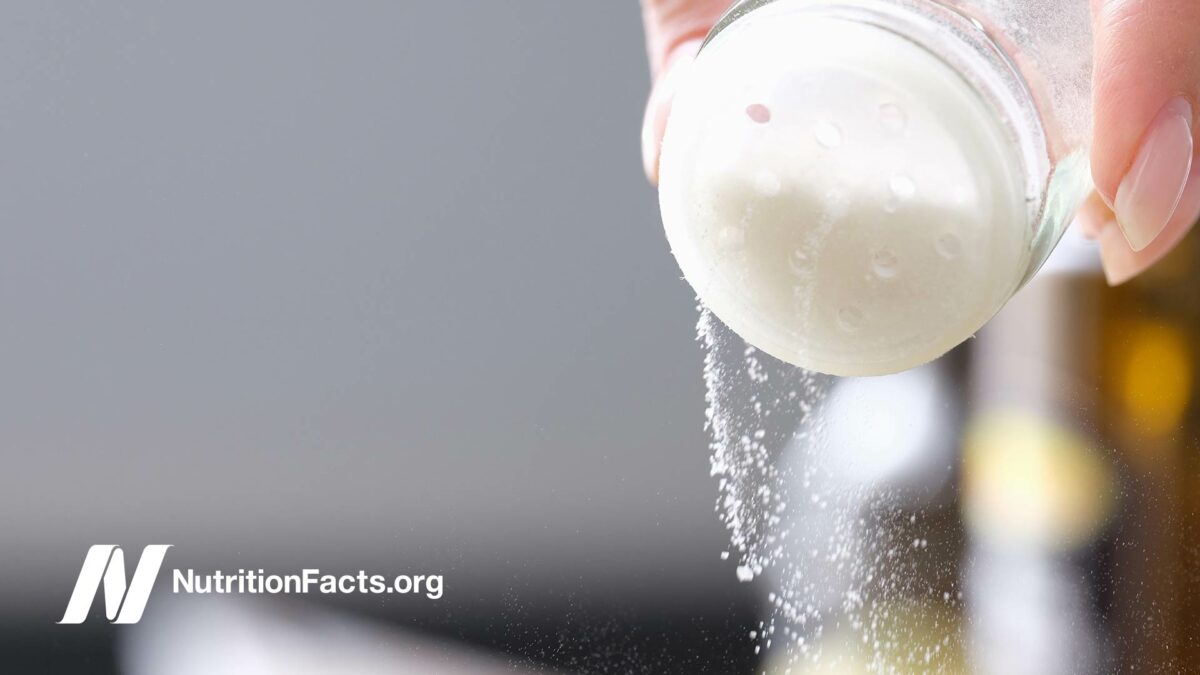
Are Potassium Chloride Salt Substitutes Effective?
Is potassium chloride win-win by decreasing sodium intake and increasing potassium intake?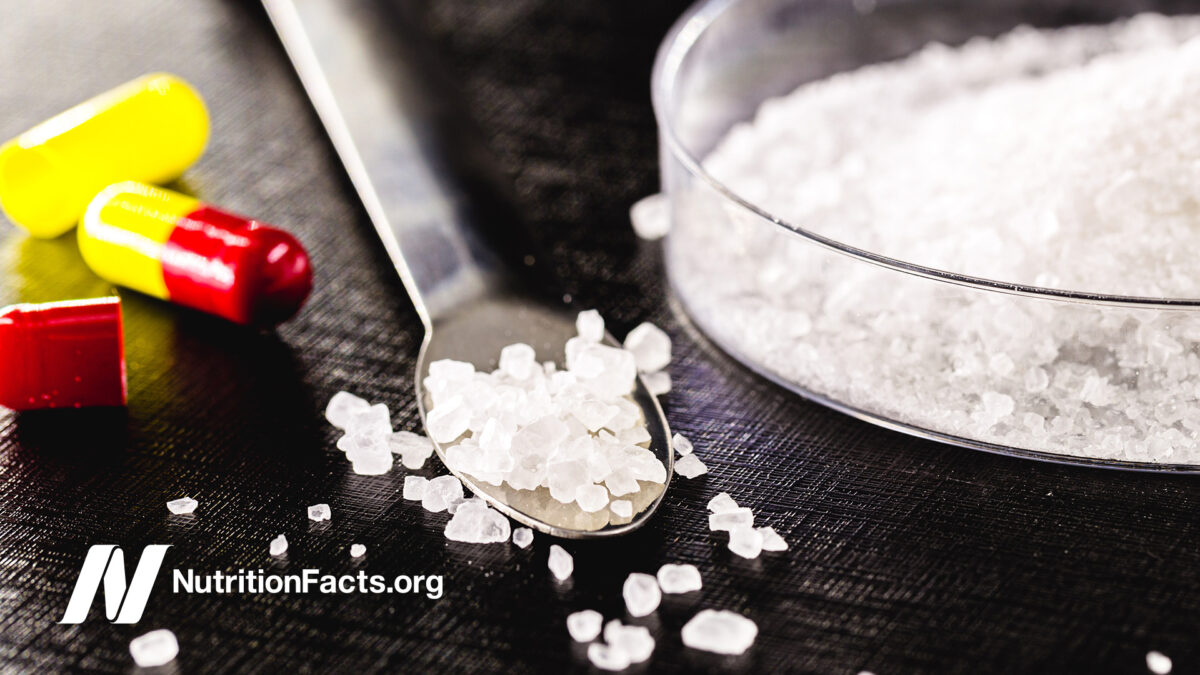
Potassium Chloride Salt Substitute Side Effects
Healthy kidneys are required for potassium excretion. If you aren’t sure if you’re at risk,...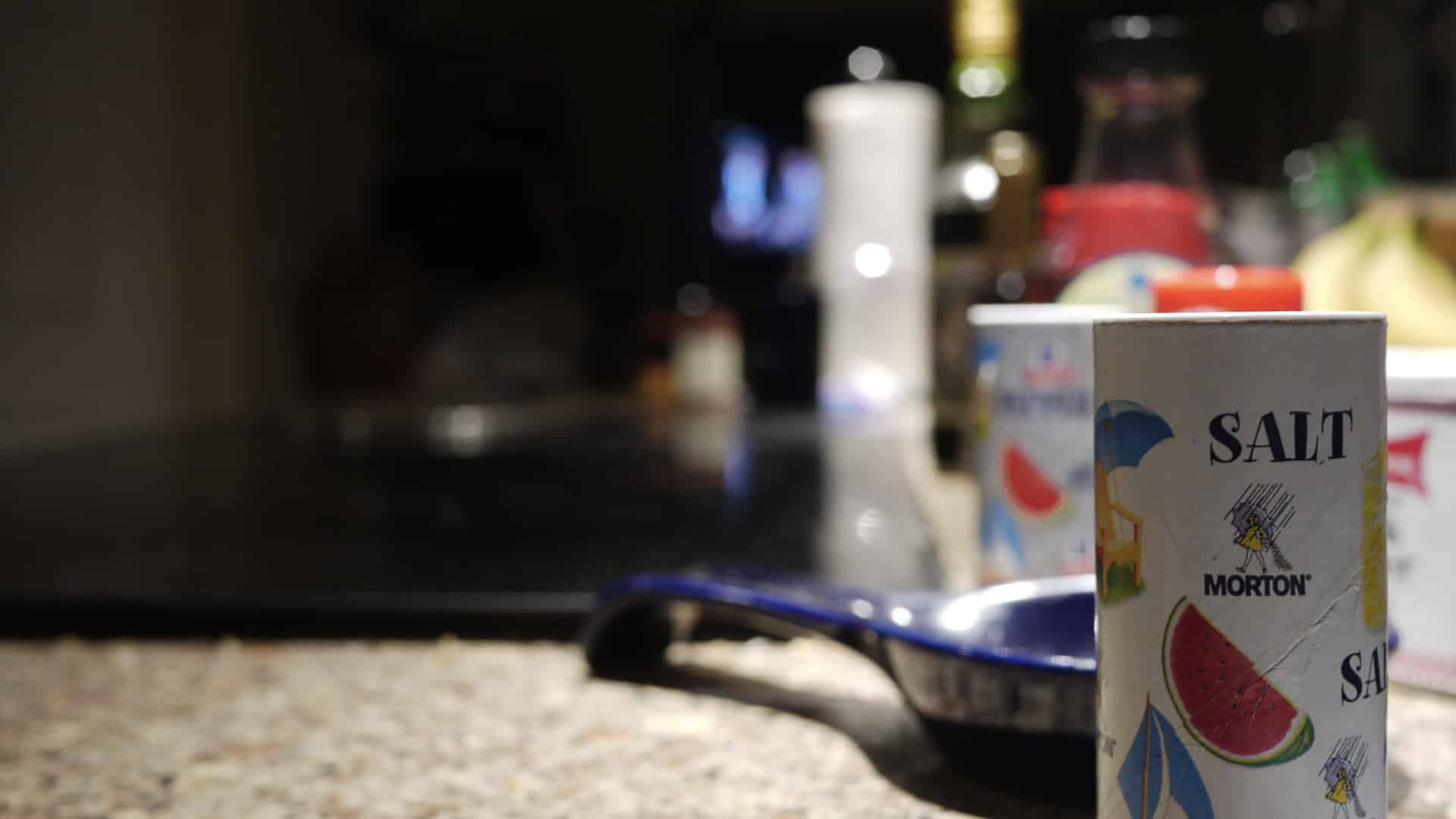
Sodium & Autoimmune Disease: Rubbing Salt in the Wound?
There are two ways in which salt may drive autoimmune diseases such as multiple sclerosis,...
How to Treat Asthma with a Low-Salt Diet
Cutting two teaspoons of salt’s worth of sodium from one’s daily diet can significantly improve...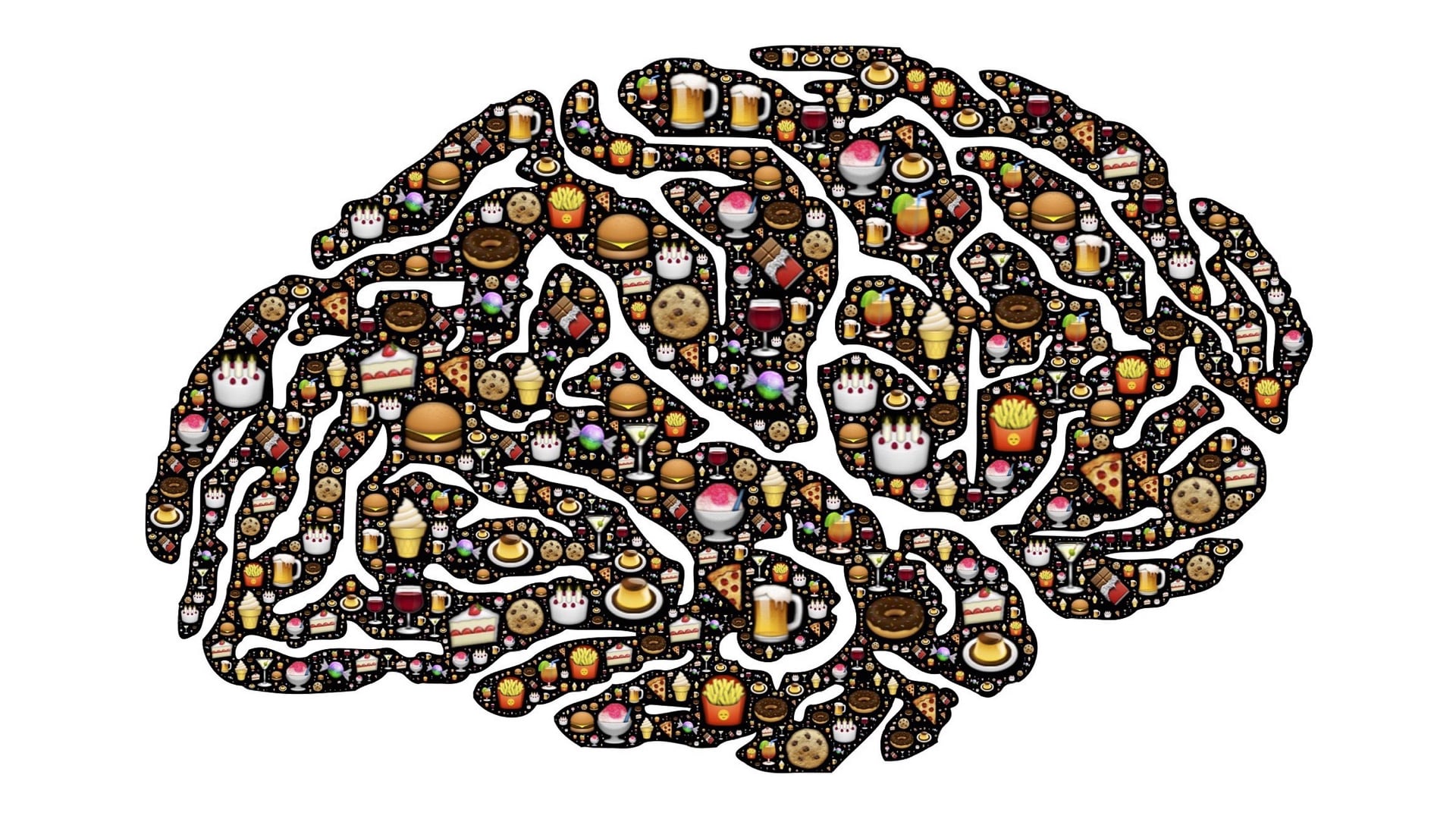
Big Salt – Getting to the Meat of the Matter
Why does the meat industry add salt to its products when millions of lives are...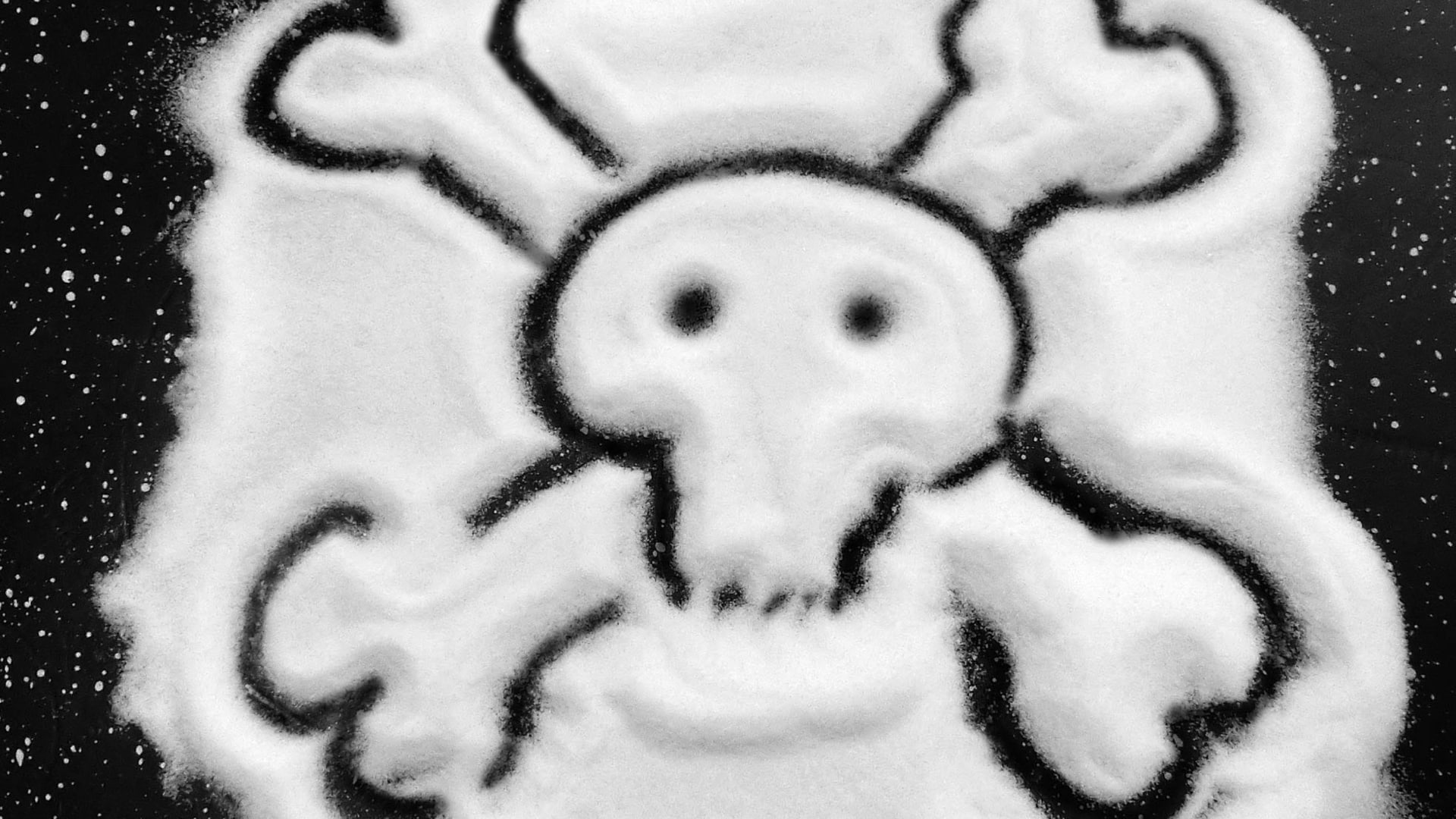
High Blood Pressure May Be a Choice
Eating a diet low enough in sodium (salt) can prevent the rise in hypertension risk...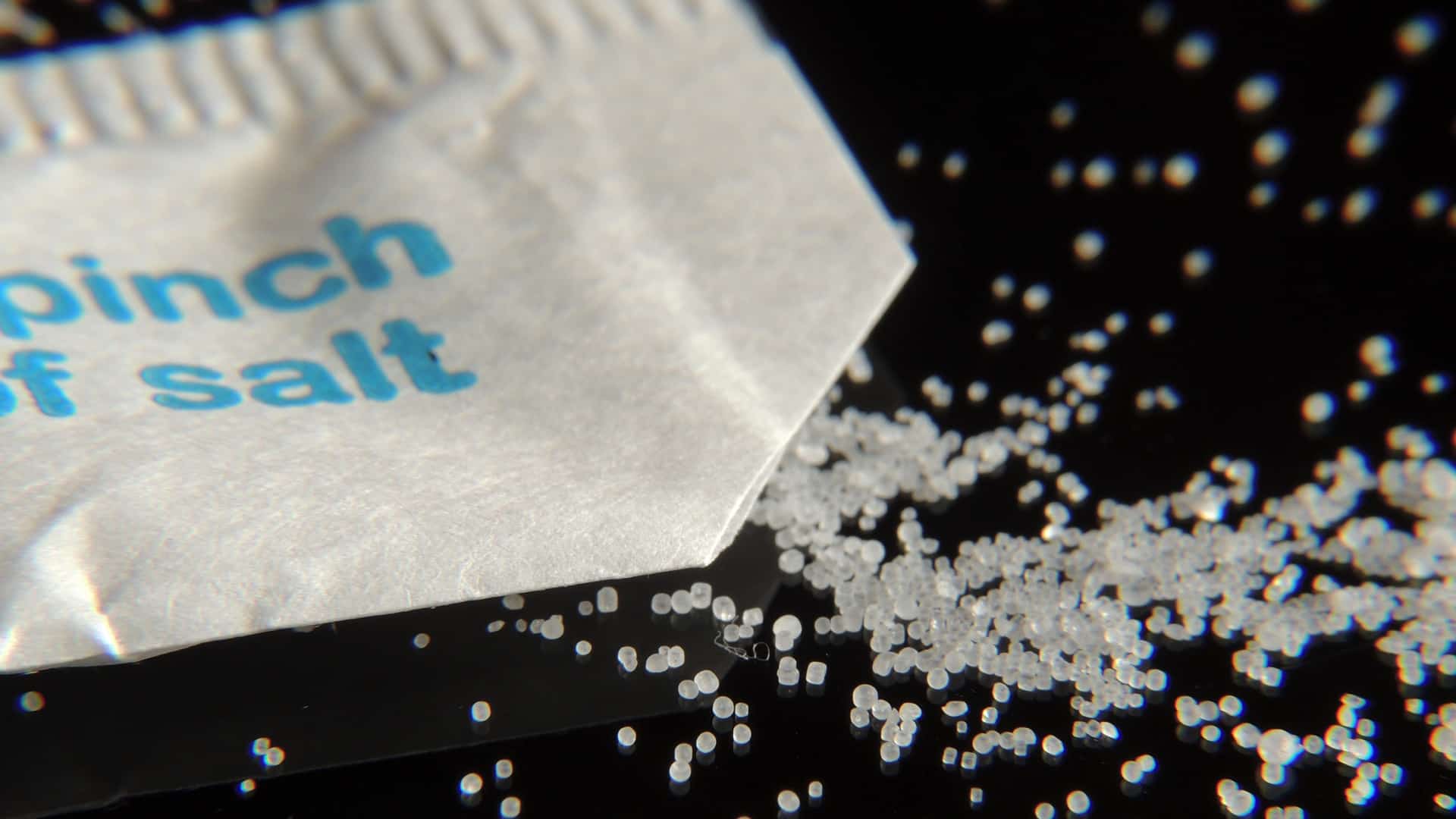
Sprinkling Doubt: Taking Sodium Skeptics with a Pinch of Salt
Is the sodium debate a legitimate scientific disagreement or a “controversy” manufactured by industry?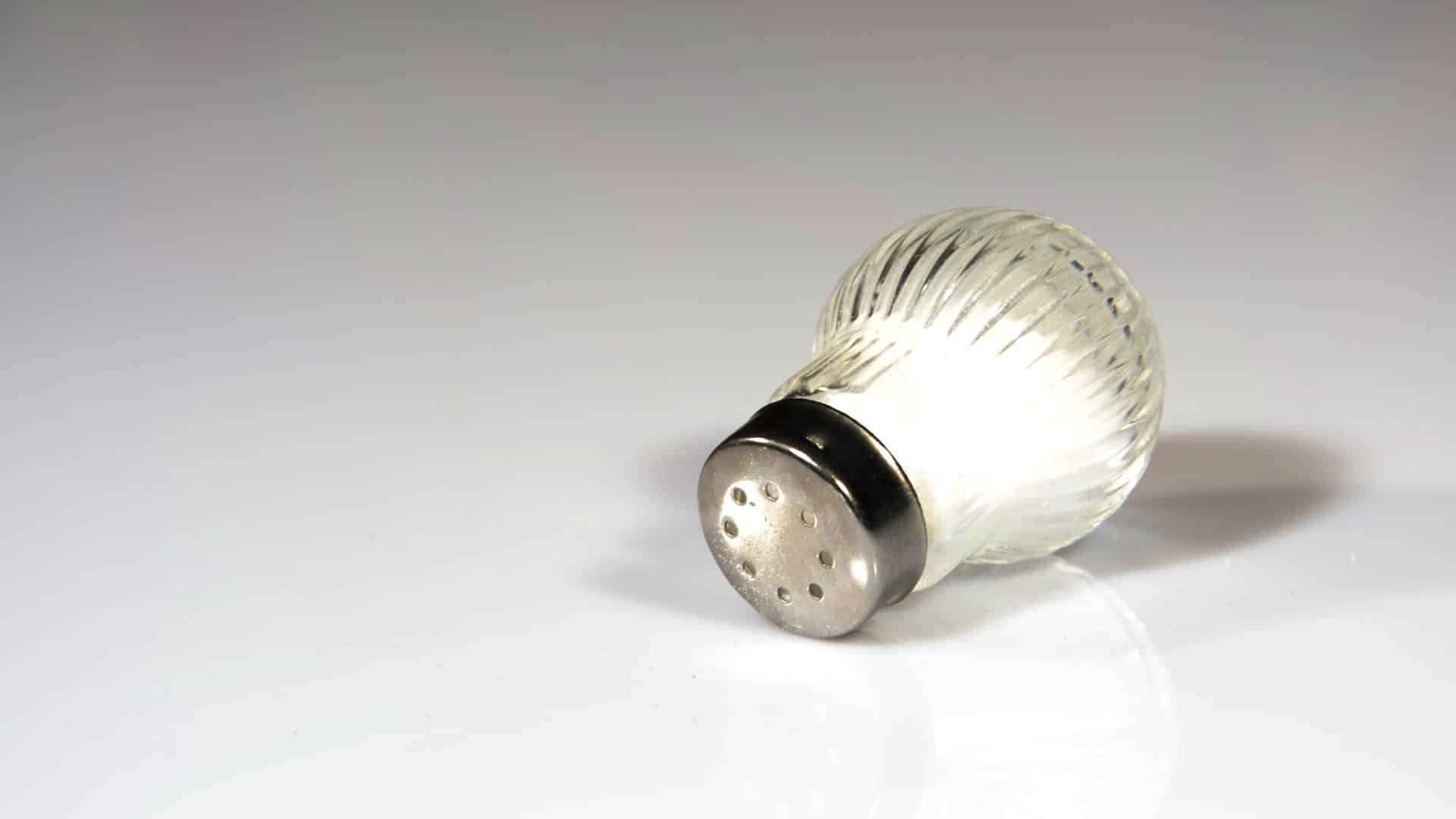
The Evidence That Salt Raises Blood Pressure
Rather than reformulate their products with less sodium and save lives, food manufacturers have lobbied...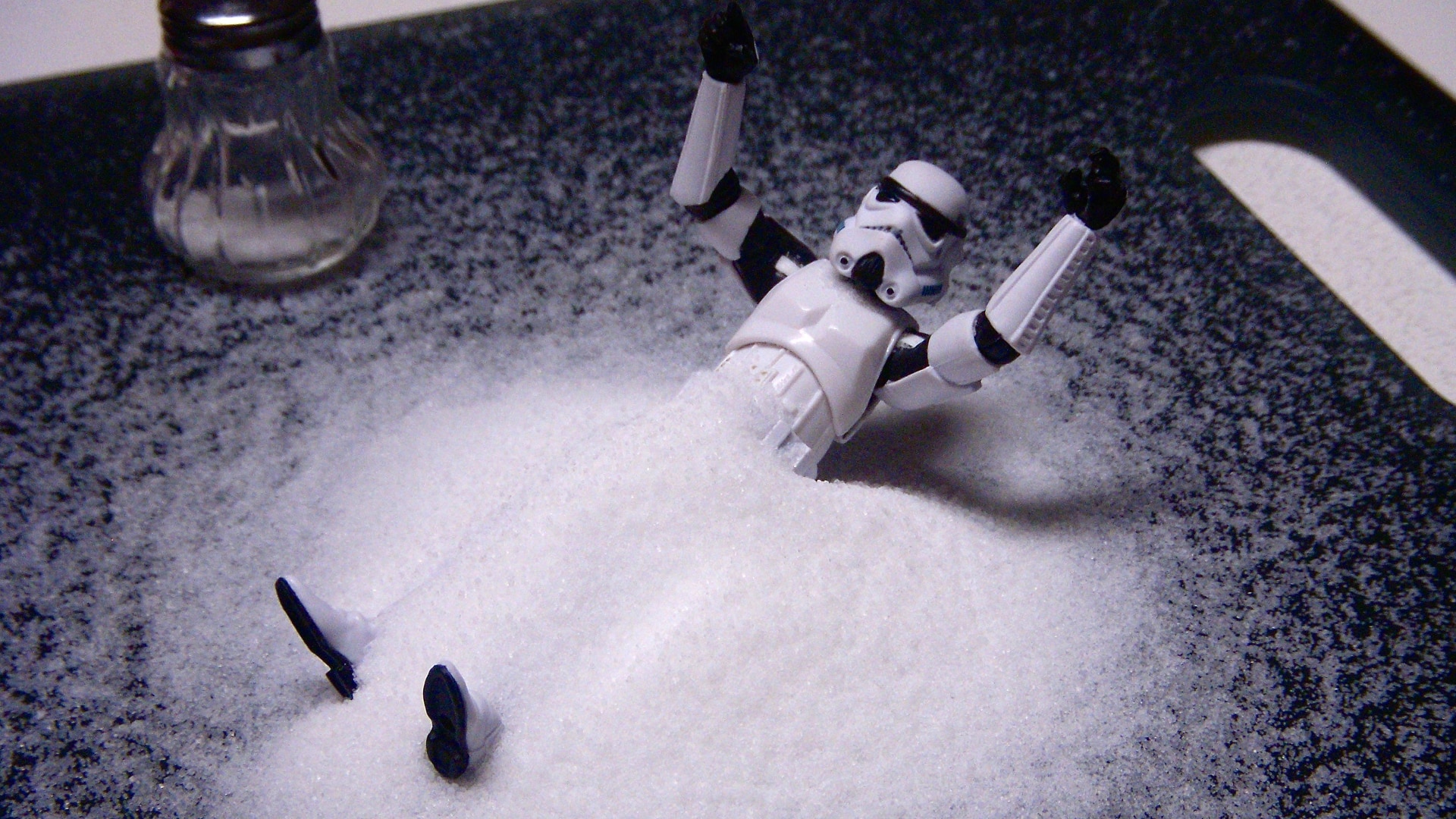
Sodium Skeptics Try to Shake Up the Salt Debate
What about the studies that show a “u-shaped curve,” where too much sodium is bad,...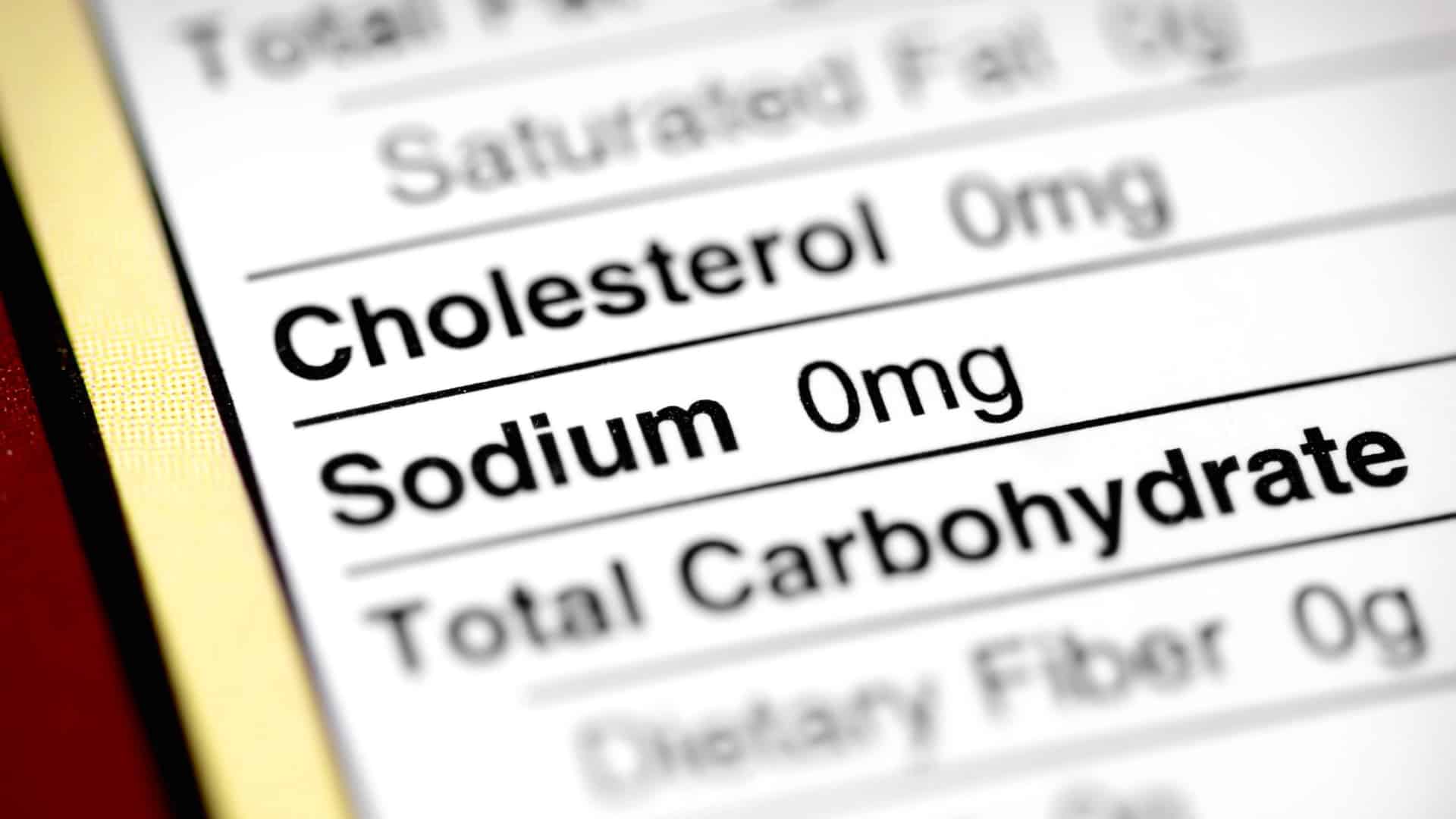
Shaking the Salt Habit
What three things can we do to lower our sodium intake? Are there any tricks...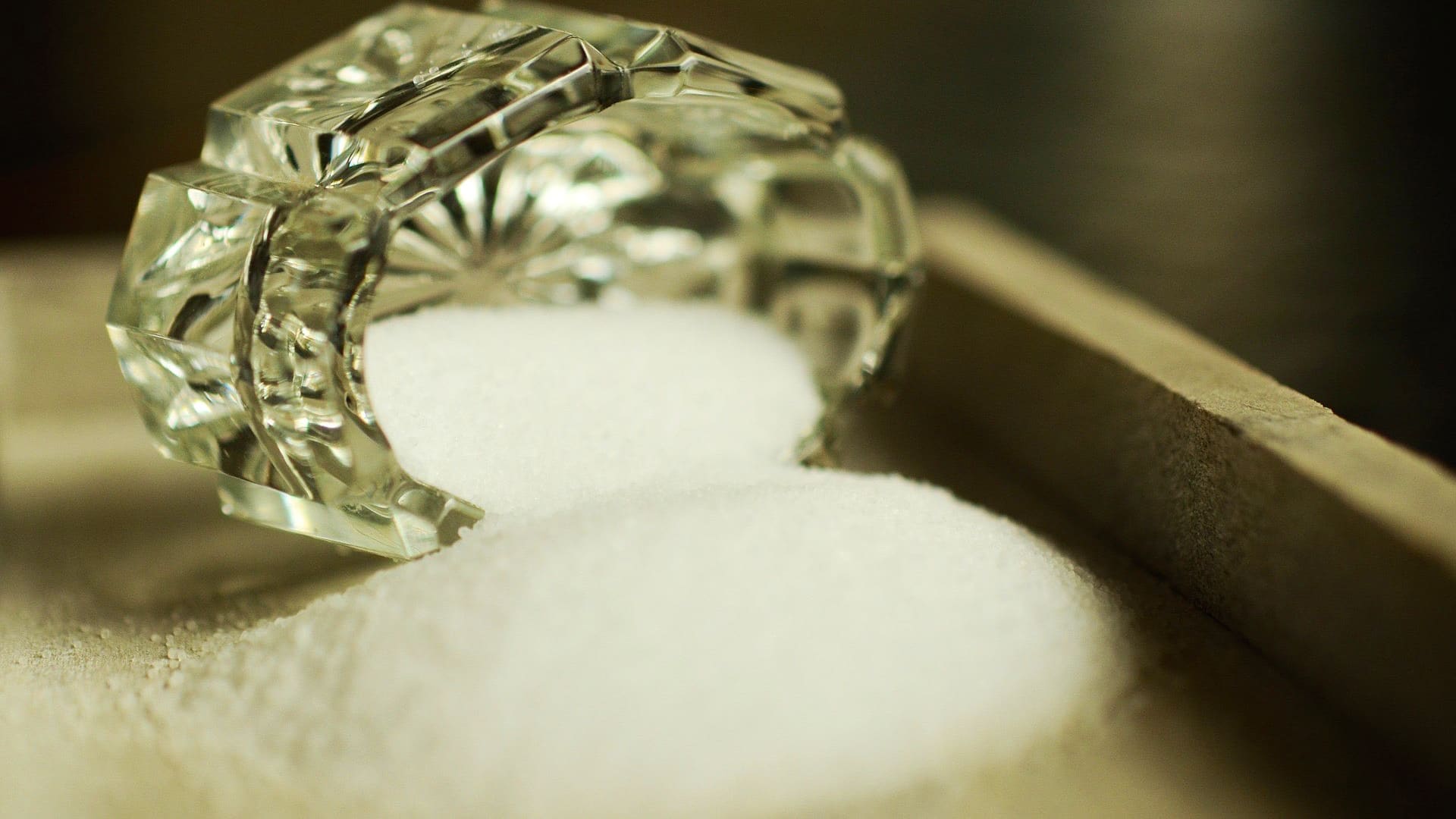
Sodium and Arterial Function: A-Salting Our Endothelium
A salted meal can impair artery function within 30 minutes by suppressing a key detoxifying...All Videos for Salt
-

Which Ultra-Processed Foods Are the Worst in Driving the Association with Death and Disease?
Only two categories of ultra-processed foods have been associated with premature death.
-

How Bad Are Ultra-Processed Foods?
Are there aspects of ultra-processed foods beyond their nutrient profile that contribute to their deleterious effects?
-

What Are Ultra-Processed Foods?
How exactly is “ultra-processed” defined?
-

Are Potassium Chloride Salt Substitutes Safe and Effective?
Swapping even half your salt for potassium chloride may make you more than a decade younger when it comes to premature death
-

Ultra-Processed Foods: Concerns, Controversies, and Exceptions
What is the role of ultra-processed plant-based products in the diet?
-

Obesity: Is a GLP-1 Deficiency Its Cause, and How to Treat It Without Ozempic and Other Drugs
What is a safer and cheaper way to lose weight than GLP-1 drugs?
-

How Not To Age – Live Presentation
In this live lecture, Dr. Greger offers a sneak peek into his latest book, How Not to Age, a New York Times Best Seller.
-

How Hot Peppers May Extend Your Life
Spice can hack your brain by making foods taste saltier.
-

A Case of Stage 3 Cancer Reversal with Fasting
I go over a case report of water-only fasting, followed by a whole food, plant-based diet for follicular lymphoma.
-

Dietary Guidelines: “Eat as Little Dietary Cholesterol as Possible”
Why do the official federal Dietary Guidelines for Americans recommend limiting the intake of dietary cholesterol (found mostly in eggs) as much as possible?
-

Soul Food That’s Good for the Soul
The best of soul food’s origins are tied to the plant-centric West African diet.
-

Oatmeal Diet Put to the Test for Diabetes Treatment
What are the extraordinary, lasting benefits we may get from a few days of an oatmeal diet?
-

Does Getting Enough Sleep Help You Lose Weight?
Even getting just one more hour of sleep a night may help with weight control.
-

The Fat-Blocking and Appetite-Suppressing Effects of Thylakoids
What is a natural way to cut down on unhealthy food cravings?
-

How to Clean Your Tongue
What is the best technique and the best frequency for tongue scraping?
-

The Best Diet for Cancer Patients
What diet should oncologists recommend?
-

Successful Government Dietary Regulations
How was England able to so successfully lower sodium intake, which was accompanied by dramatic drops in stroke and heart disease deaths?
-

The Best Diet for Healthy Aging
Swapping just 1 percent of plant protein in place of animal protein was associated with significantly less age-related deficit accumulation.
-

How to Treat H. Pylori Naturally with Diet
What food can eradicate H. pylori in the majority of patients?
-

The Role of Kimchi and H. Pylori in Stomach Cancer
What explains the Achilles’ heel in certain Asian diets?
-

Potassium Chloride Salt Substitute Side Effects
Healthy kidneys are required for potassium excretion. If you aren’t sure if you’re at risk, ask your doctor about getting your kidney function tested.
-

Are Potassium Chloride Salt Substitutes Effective?
Is potassium chloride win-win by decreasing sodium intake and increasing potassium intake?
-

Fewer Than 1 in 5,000 Meet Sodium and Potassium Recommended Intakes
A staggering 99.99 percent of Americans fail to get the minimum recommended potassium intake (despite it being perhaps only half of our natural intake) and stay below the recommended sodium intake (even though it may be twice our natural intake).
-

Exercising to Protect Your Arteries from Fast Food
There is a window of time in which sufficient physical activity can help mediate some of the damage caused by eating an unhealthy meal.
-

Ultra-Processed Junk Food Put to the Test
What happened when ultra-processed foods were matched for calories, sugar, fat, and fiber content in the first randomized controlled trial?
-

IARC: Processed Meat Like Bacon Causes Cancer
How did the meat industry, government, and cancer organizations respond to the confirmation that processed meat, like bacon, ham, hot dogs, and lunch meat, causes cancer?
-

Do the Health Benefits of Peanut Butter Include Longevity?
Why are nuts associated with decreased mortality, but not peanut butter?
-

Do Potatoes Increase the Risk of High Blood Pressure and Death?
Do potato eaters live longer or shorter lives than non-potato eaters?
-

Hospitals with 100 Percent Plant-Based Menus
The American Medical Association has passed a resolution encouraging healthy plant-based food options be available in hospitals.
-

3-MCPD in Refined Cooking Oils
There is another reason to avoid palm oil and question the authenticity of extra-virgin olive oil.
-

The Healthiest Natural Source of Iodine
How much nori, dulse, or arame approximate the recommended daily allowance for iodine?
-

Are Vegans at Risk for Iodine Deficiency?
Most plant-based milks are not fortified with iodine.
-

Just How Bad Is Hospital Food?
What do hospitals have to say for themselves for feeding people meals that appear to be designed to inspire repeat business?
-

What About the Heme in Impossible Burgers?
Is heme just an innocent bystander in the link between meat intake and breast cancer, diabetes, heart disease, stroke, and high blood pressure?
-

The Health Effects of Mycoprotein (Quorn) Products vs. BCAAs in Meat
Clinical trials on Quorn show that it can improve satiety and help people control cholesterol, blood sugar, and insulin levels.
-

Are Beyond Meat and the Impossible Burger Healthy?
What happens when you compare the trans fats, saturated fat, sodium, and cholesterol levels in plant-based versus animal-based burgers?
-

Vegetarians and Stroke Risk Factors—Saturated Fat?
How can we explain the drop in stroke risk as the Japanese diet became Westernized by eating more meat and dairy?
-

Vegetarians and Stroke Risk Factors—Vegan Junk Food?
Just because you’re eating vegetarian or vegan doesn’t mean you’re eating healthy.
-

Do Vegetarians Really Have Higher Stroke Risk?
The first study in history on the incidence of stroke of vegetarians and vegans suggests they may be at higher risk.
-

What Not to Eat for Stroke Prevention
What is the relationship between stroke risk and dairy, eggs, meat, and soda?
